Related Research Articles
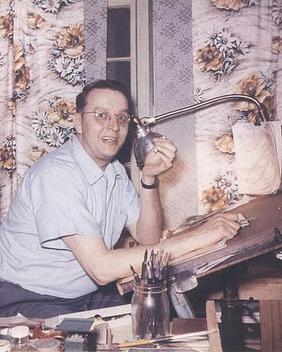
Jack Ralph Cole was an American cartoonist best known for birthing the comedic superhero Plastic Man, and his cartoons for Playboy magazine.

Quality Comics was an American comic book publishing company which operated from 1937 to 1956 and was a creative, influential force in what historians and fans call the Golden Age of Comic Books.

The Spirit is a fictional masked crimefighter appearing in American comic books. Created by cartoonist Will Eisner, he first appeared as the main feature of a tabloid-sized comic book insert distributed in the Sunday edition of Register and Tribune Syndicate newspapers. Popularly referred to as "The Spirit Section", the insert ran from June 2, 1940 to October 5, 1952.
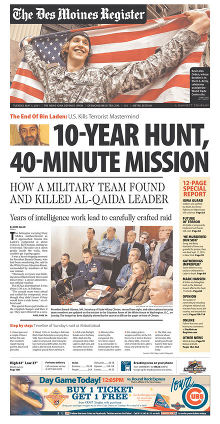
The Des Moines Register is the daily morning newspaper of Des Moines, Iowa, United States.

Jane Arden was an internationally syndicated daily newspaper comic strip which ran from November 26, 1928 to January 20, 1968. The title character was the original "spunky girl reporter", actively seeking to infiltrate and expose criminal activity rather than just report on its consequences and served as a prototype for later characters such as Superman supporting character Lois Lane and fellow comic strip heroine Brenda Starr, Reporter. Pulitzer Prize-winning columnist Mary McGrory credited Jane Arden with instilling her interest in journalism.
United Feature Syndicate, Inc. (UFS) is a large American editorial column and comic strip newspaper syndication service based in the United States and established in 1919. Originally part of E. W. Scripps Company, it was part of United Media from 1978 to 2011, and is now a division of Andrews McMeel Syndication. United Features has syndicated many notable comic strips, including Peanuts, Garfield, Li'l Abner, Dilbert, Nancy, and Marmaduke.
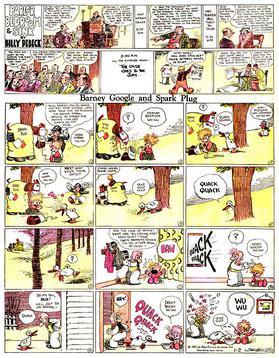
The Sunday comics or Sunday strip is the comic strip section carried in most Western newspapers. Compared to weekday comics, Sunday comics tend to be full pages and are in color. Many newspaper readers called this section the Sunday funnies, the funny papers or simply the funnies.
Fox Feature Syndicate was a comic book publisher from early in the period known to fans and historians as the Golden Age of Comic Books. Founded by entrepreneur Victor S. Fox, it produced such titles as Blue Beetle, Fantastic Comics and Mystery Men Comics.
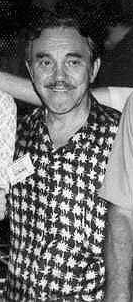
Samuel Maxwell "Jerry" Iger was an American cartoonist and art-studio entrepreneur. With business partner Will Eisner, he co-founded Eisner & Iger, a comic book packager that produced comics on demand for new publishers during the late-1930s and 1940s period known to fans and historians as the Golden Age of Comic Books.

Lady Luck is an American comic-strip and comic-book crime fighter and adventuress created and designed in 1940 by Will Eisner with artist Chuck Mazoujian. She starred in a namesake, four-page weekly feature published in a Sunday newspaper comics insert colloquially called "The Spirit Section", which ran from June 2, 1940, to November 3, 1946. Her adventures were reprinted in comic books published by Quality Comics. A revamped version of the character debuted in 2013 in DC Comics's Phantom Stranger comic.

Everett M. Arnold, also known as Busy Arnold, was an American publisher and an early comic-book entrepreneur whose company Quality Comics published during the 1930s and 1940s period fans and historians call the Golden Age of Comic Books. He was also instrumental in the publishing arrangement that led to Will Eisner's newspaper Sunday-supplement comics series The Spirit.
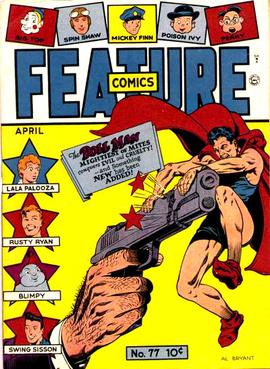
Feature Comics, originally Feature Funnies, was an American comic book anthology series published by Quality Comics from 1939 until 1950, that featured short stories in the humor genre and later the superhero genre.

Mr. Mystic is a comics series featuring a magician crime-fighter, created by Will Eisner and initially drawn by Bob Powell. The strip featured in four-page backup feature a Sunday-newspaper comic-book insert, known colloquially as "The Spirit Section". It first appeared in 1940, distributed by the Register and Tribune Syndicate.
A comic strip syndicate functions as an agent for cartoonists and comic strip creators, placing the cartoons and strips in as many newspapers as possible on behalf of the artist. A syndicate can annually receive thousands of submissions, from which only two or three might be selected for representation. In some cases, the work will be owned by the syndicate as opposed to the creator. The Guinness World Record for the world's most syndicated strip belongs to Jim Davis' Garfield, which at that point (2002) appeared in 2,570 newspapers, with 263 million readers worldwide.
Klaus Nordling was an American writer-artist for American comic books. He is best known for his work on the 1940s masked-crimefighter feature "Lady Luck", and as co-creator of the Marvel Comics superhero the Thin Man. Some of the early Nordling's pen names are Fred Nordley, F. Klaus, Ed Norris, and Clyde North.

Crack Comics is an anthology comic book series published by Quality Comics during the Golden Age of Comic Books. It featured such characters as The Clock, Black Condor, Captain Triumph, Alias the Spider, Madame Fatal, Jane Arden, Molly the Model, and Red Torpedo. The title "crack" referred to "being at the top of one's form", like a "crack sharpshooter".
Eisner & Iger was a comic book packager that produced comics on demand for publishers entering the new medium during the late-1930s and 1940s, a period fans and historians call the Golden Age of Comic Books. Founded by Will Eisner and Jerry Iger, many of comic books' most significant creators, including Jack Kirby, entered the field through its doors. Eisner & Iger existed from 1936 to 1939.
The Bell Syndicate, launched in 1916 by editor-publisher John Neville Wheeler, was an American syndicate that distributed columns, fiction, feature articles and comic strips to newspapers for decades. It was located in New York City at 247 West 43rd Street and later at 229 West 43rd Street. It also reprinted comic strips in book form.
The Public Ledger Syndicate was a syndication company operated by the Philadelphia Public Ledger that was in business from 1915 to circa 1950. The Ledger Syndicate distributed comic strips, panels, and columns to the United States and the United Kingdom, Ireland, Canada, Sweden, New Zealand, and Australia. The syndicate also distributed material from the Curtis Publishing Company's other publications, including The Saturday Evening Post, Ladies' Home Journal, and The Country Gentleman.
The Frank Jay Markey Syndicate was a small print syndication service that distributed comic strips and columns from the mid-1930s to c. 1950. Although small in size, the syndicate distributed strips by a number of notable cartoonists, including Ed Wheelan, Rube Goldberg, Boody Rogers, and Frank Borth. The syndicate also provided material for the burgeoning comic book industry, for companies like Quality Comics and Columbia Comics.
References
- 1 2 "Who's Who Among Leading U.S. Syndicate Executives," Editor and Publisher (September 7, 1946). Archived at "News of Yore 1946: Syndicate Executives Profiled," Stripper's Guide (July 21, 2010).
- ↑ "Henry Martin Retires," The Des Moines Register (November 24, 1959): effective January 1, 1960.
- ↑ "C. E. LOUNSBURY, EDITOR, IS DEAD," The Des Moines Register (November 2, 1952), p. 13.
- ↑ Steranko, Jim (1972). The Steranko History of Comics 2. Reading, Pennsylvania: Supergraphics. p. 92. ISBN 0-517-50188-0.
- ↑ "Quality Comic Group: A Brief History". Connecticut Historical Society. Archived from the original on September 27, 2007.
- ↑ Will Eisner interview, Alter Ego No. 48 (May 2005), p. 10
- ↑ Spirit, The (Register and Tribune Syndicate, 1940 Series) at the Grand Comics Database
- ↑ "Wee Pals" at Don Markstein's Toonopedia. Accessed January 27, 2014. Archived from the original on January 12, 2015.
- ↑ Strentz, Herb. "John Cowles," Cowles Family Publishing Legacy: Drake University, Cowles Library. Accessed Jan. 3, 2018.
- ↑ Maley, Don. "New Panel Pokes Fun at Suburban Housewife," Editor & Publisher (August 9, 1969). Archived at "News of Yore 1969," Stripper's Guide (December 3, 2013).
- ↑ Markstein, Don. "AMERICA’S BEST BUY: THE LOUISIANA PURCHASE," Don Markstein's Toonpedia. Accessed Jan. 4, 2018.
- ↑ Gary Dowell, Greg Holman, Don Mangus, James L. Halperin (editor). HCA Comics Dallas Auction Catalog #824. Heritage Capital Corporation. p. 268 (link). ISBN 978-1-59967-133-8.
{{cite book}}:|author=has generic name (help)CS1 maint: multiple names: authors list (link) - ↑ Strickler, Dave. Syndicated Comic Strips and Artists, 1924–1995: The Complete Index. Cambria, California: Comics Access, 1995. ISBN 0-9700077-0-1
- ↑ "ASK THE ARCHIVIST: BOB BARNES CENTENNIAL," Comics Kingdom (November 27, 2013).
- 1 2 3 Schoenke profile, Who's Who of American Comic Book Artists, 1928–1999. Accessed Jan. 5, 2018.
- ↑ Holtz, Allan (January 27, 2010). "Obscurity of the Day: Howard the Duck". Stripper's Guide. Archived from the original on March 9, 2012. Retrieved June 4, 2012.
The newspaper strip version began on June 6, 1977 at the height of Howard-mania. At first Steve Gerber and Gene Colan, the creative team on the comic book, handled the strip as well. Colan, however, dropped out after just five months, and his job was taken over by Val Mayerik, who was occasionally spelling Colan on the comic book.
- ↑ Holtz, Allan. American Newspaper Comics: An Encyclopedic Reference Guide (University of Michigan Press, 2012).
- ↑ Markstein, Don. "The Red Knight," Don Markstein's Toonpedia. Accessed Jan. 4, 2018.
- ↑ Celardo profile, Who's Who of American Comic Books, 1928–1999. Accessed Jan. 5, 2018.